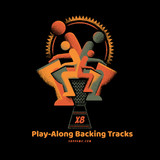Difficulties and Challenges of Drumming
Drumming, some say, is a distinct calling that requires a great deal of patience, dedication, and motivation. The act of drumming itself can illustrate the journey a drummer has taken to get to the point of performing in public through driving rhythms, emotional solos and the creation of a foundation for any other instruments to follow. This picture of a drummer is part of the draw to drumming, producing profound effects within the music and contributing to the overall feel of a performance or vibe in a drum circle.
Choosing a drum can be a daunting obstacle, particularly for the new drummer looking to create a personal sound, and there are as many drum choices as there are drummers and styles of music. A Djembe, for instance, may be best known for its focused beat within a drum circle, but many of these drums are also found in popular, recorded music. Establishing the style and type of drum, in addition to understanding what features are best (the type of drum shell, for instance) can be overwhelming to a drummer. Local music stores may be able to help guide the rhythm, so to speak, of a drummer toward the right drum. Listening to a variety of styles of music that feature the sound of different types of drums can also offer insight into the possibilities of a drum. Online drumming websites are options for those just beginning a search, helping to narrow down the options, or be the final factor in deciding between just a couple of drum choices.
Playing a drum is more than hitting its head with the hands, or with sticks or mallets. The art of drumming takes a great deal of effort that begins with learning foundations of rhythm and drumming. Drumming rudiments, for example, are the basics of drum set drumming, while ethnic rhythms help build the foundation for hand drums, much in the same way as a drumming rudiment. Finding a teacher or a drumming group can help make the basics less of a challenge, and be a way to ensure the motivation to drum remains high. Making drumming a priority is essential to mastering the art of drumming and rhythm. By practicing and regularly performing, a drummer increases knowledge of both drumming, as well as the way in which drums tie other instruments and musicians together.
As an instrument, drums present unique challenges to the drummer, whether just starting out or picking up a new type of drum. No matter whether the drum is a Djembe or a snare, each drum brings a different style of playing, different methods to produce the best sound, and a learning curve that can be challenging to even the most experienced drummer. Through self-discipline, motivation and a love for rhythm and drumming, the challenges and obstacles of drumming are easy surmounted, bringing the gift of music to the drummer, and to the world at large.
Recent Posts
-
X8 Drums Play-Along Backing Tracks
The new X8 Play-Along Series is being produced for our musician friends wanting a fresh way to work …9th Feb 2025 -
What is the Best Size Djembe for Beginners?
If you're new to the world of percussion and interested in learning the djembe, you're in for a t …16th Jul 2024 -
The Benefits of Becoming a Drumming Teacher: Transforming Passion into Profession
Why become a drumming teacher? Becoming a drumming teacher is an excellent way to share your pas …22nd May 2024



